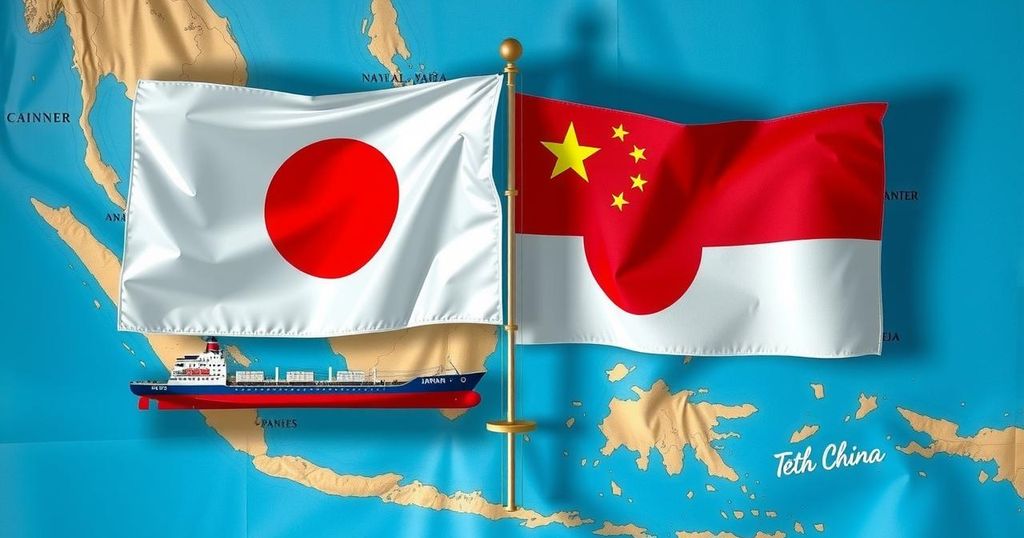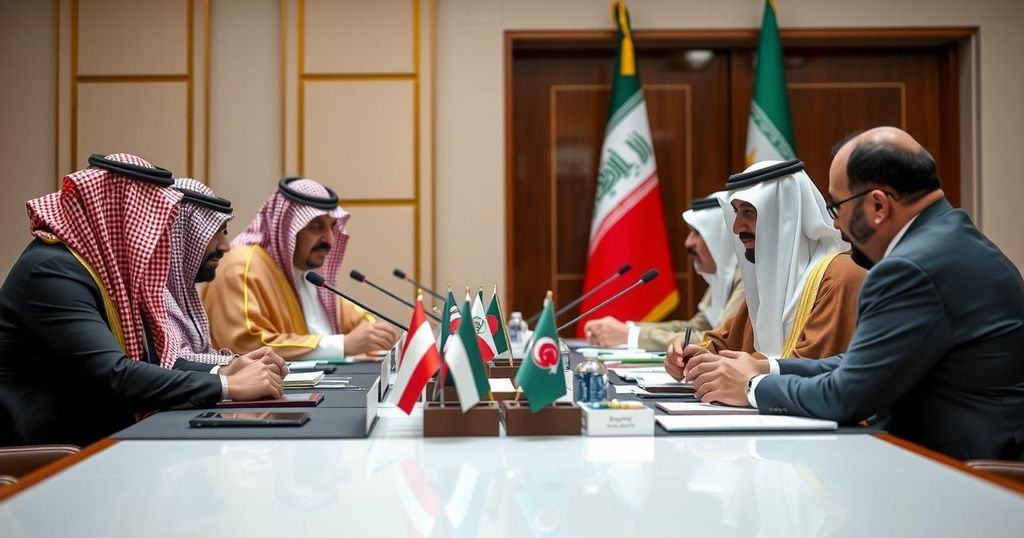Politics
ASAHI SHIMBUN, ASEAN, ASIA, BILATERAL RELATIONS, BRICS, CLEAN ENERGY, DEFENSE, ECONOMIC COOPERATION, GREEN ENERGY, INDONESIA, ISHIBA, JAPAN, MARITIME SELF - DEFENSE FORCE, OFFICIAL SECURITY ASSISTANCE PROGRAM, PALACE, PRABOWO, SHI, SHIGERU ISHIBA, SOUTH CHINA SEA, SOUTHEAST ASIA, TOKYO, TRUMP
Clara Montgomery
Japan and Indonesia Strengthen Maritime Security Cooperation Amid Regional Tensions
Japan and Indonesia have agreed to enhance maritime security cooperation amid China’s assertive claims in the South China Sea. Prime Minister Shigeru Ishiba announced Japan would aid Indonesia with a patrol boat and that the nations would hold a two-plus-two meeting of defense and foreign ministers by the end of the year. Both leaders emphasized their strategic partnership and commitment to regional stability, highlighting broader collaboration on economic and defense matters.
On January 11, during a meeting at the Bogor Presidential Palace, Japanese Prime Minister Shigeru Ishiba and Indonesian President Prabowo Subianto reached a consensus to bolster their collaboration on maritime security in response to China’s assertive claims in the South China Sea. Prime Minister Ishiba announced that Japan will provide a high-speed patrol boat to the Indonesian navy as part of its Official Security Assistance program.
Moreover, both leaders agreed to convene a two-plus-two meeting of their foreign and defense ministers by year-end, which marks the first occurrence since March 2021. This initiative reinforces a security framework initiated in 2015, signifying Japan’s commitment to strengthen relations with Southeast Asian nations, particularly amidst regional tensions instigated by China’s maritime advancements.
During the joint press conference, Prime Minister Ishiba emphasized the importance of Indonesia as a strategic partner that shares core values with Japan. President Prabowo echoed this sentiment, acknowledging Japan’s significance in Indonesia’s foreign relations and highlighting their commitment to fostering cooperation across various sectors.
Further discussions included bilateral efforts in defense technology, personnel exchanges, and the potential joint development of naval vessels. Economically, both nations confirmed their intention to collaborate on resource management and infrastructure projects, focusing on reducing environmental impacts in Asia. Additionally, Indonesia’s recent membership in BRICS indicates its robust ties with China, presenting a complex geopolitical landscape as both nations pursue regional stability and diverse international relations.
In light of ongoing complexities in the international sphere, Prime Minister Ishiba underscored the necessity of firm relations with Southeast Asia, articulating the significance of continued dialogue concerning the United States and China, as well as tensions in the East and South China Seas. This engagement exemplifies mutual commitment to fostering peace and strategic collaboration in the region.
The South China Sea has been a focal point of territorial disputes, primarily involving China and its regional neighbors, including Indonesia. As China’s influence expands, countries like Japan and Indonesia seek to fortify their maritime security collaborations to mitigate risks and ensure stability in the region. The burgeoning partnership aligns with Japan’s strategy to counterbalance China’s ambitions while reinforcing its ties with Southeast Asian nations, many of whom share concerns over regional security dynamics. The recent agreements signify a significant stride towards enhanced military cooperation, resource management, and collective efforts to address rising geopolitical tensions.
The discussions between Japan and Indonesia on enhancing maritime security and economic cooperation signify a strategic alignment in light of China’s assertiveness in the South China Sea. Through the provision of defense support and the planned two-plus-two ministerial meeting, both nations are poised to strengthen their collaborative efforts. These developments reflect the shared commitment of Japan and Indonesia to foster stability, ensure security, and maintain constructive international relations amidst an evolving geopolitical landscape.
Original Source: www.asahi.com







Post Comment